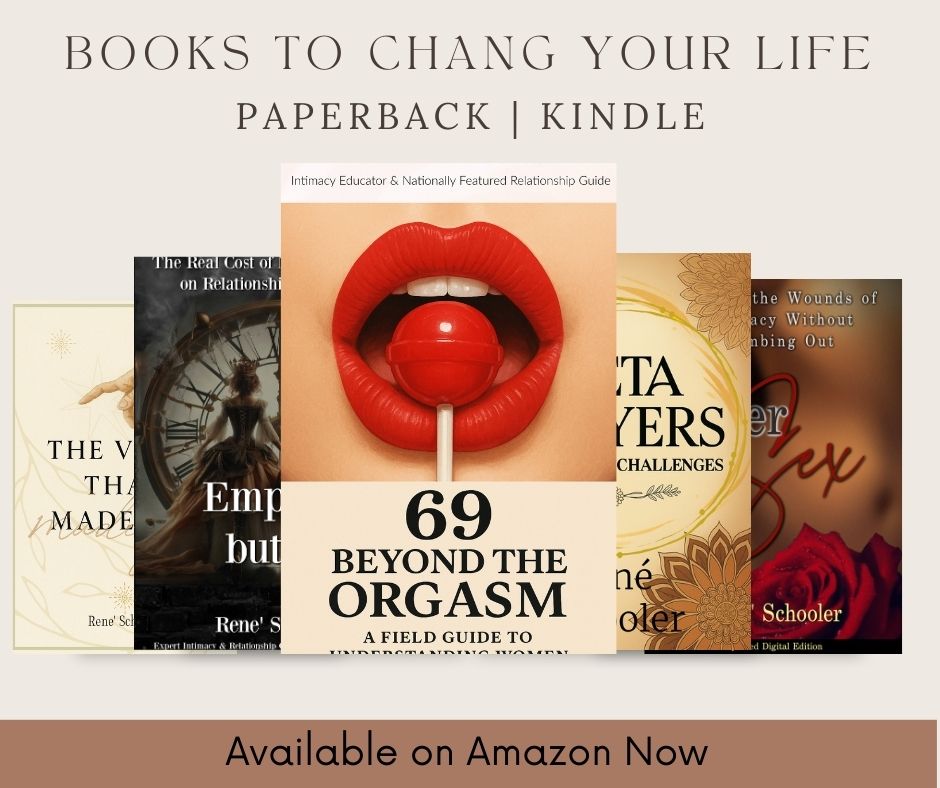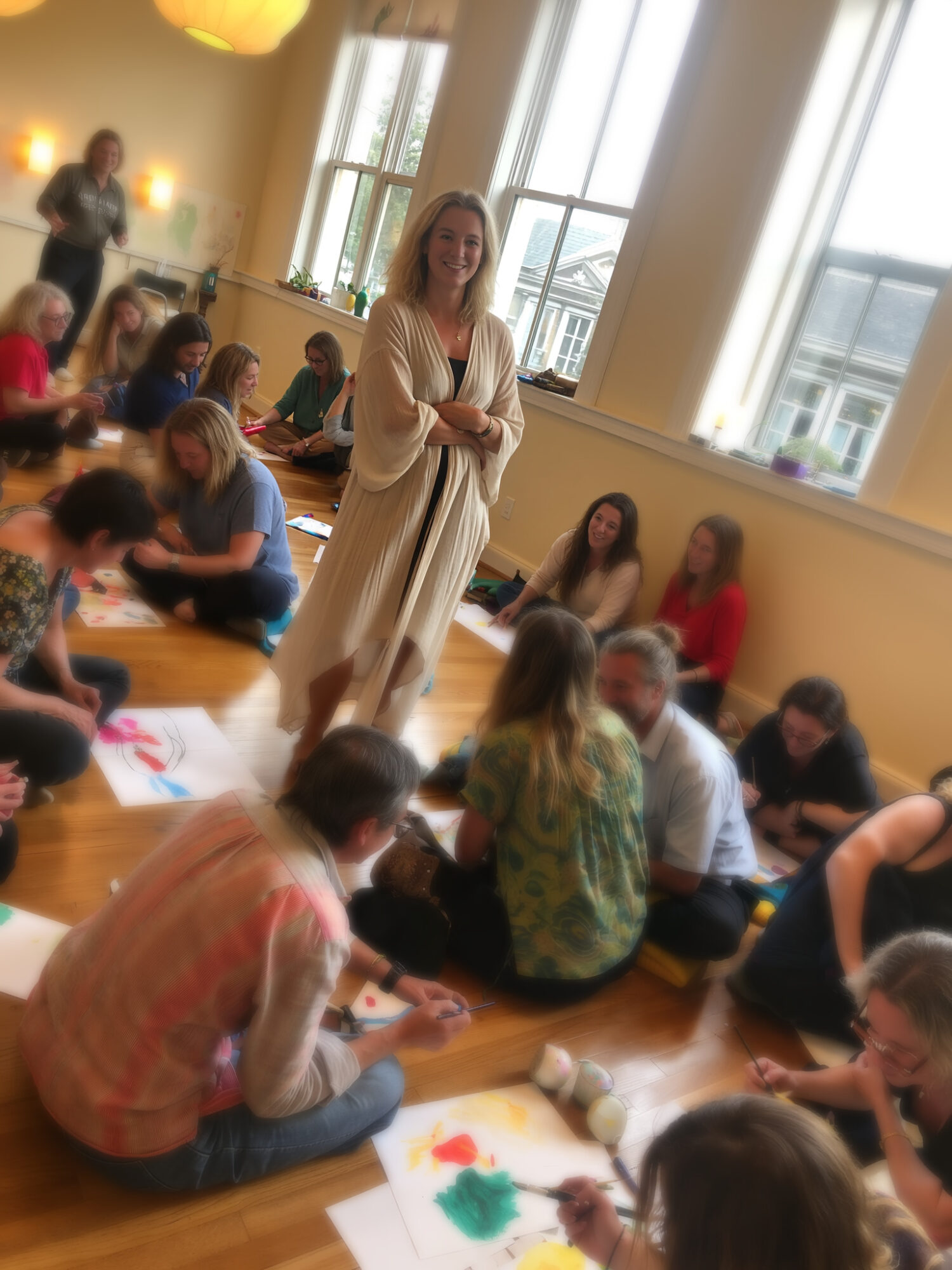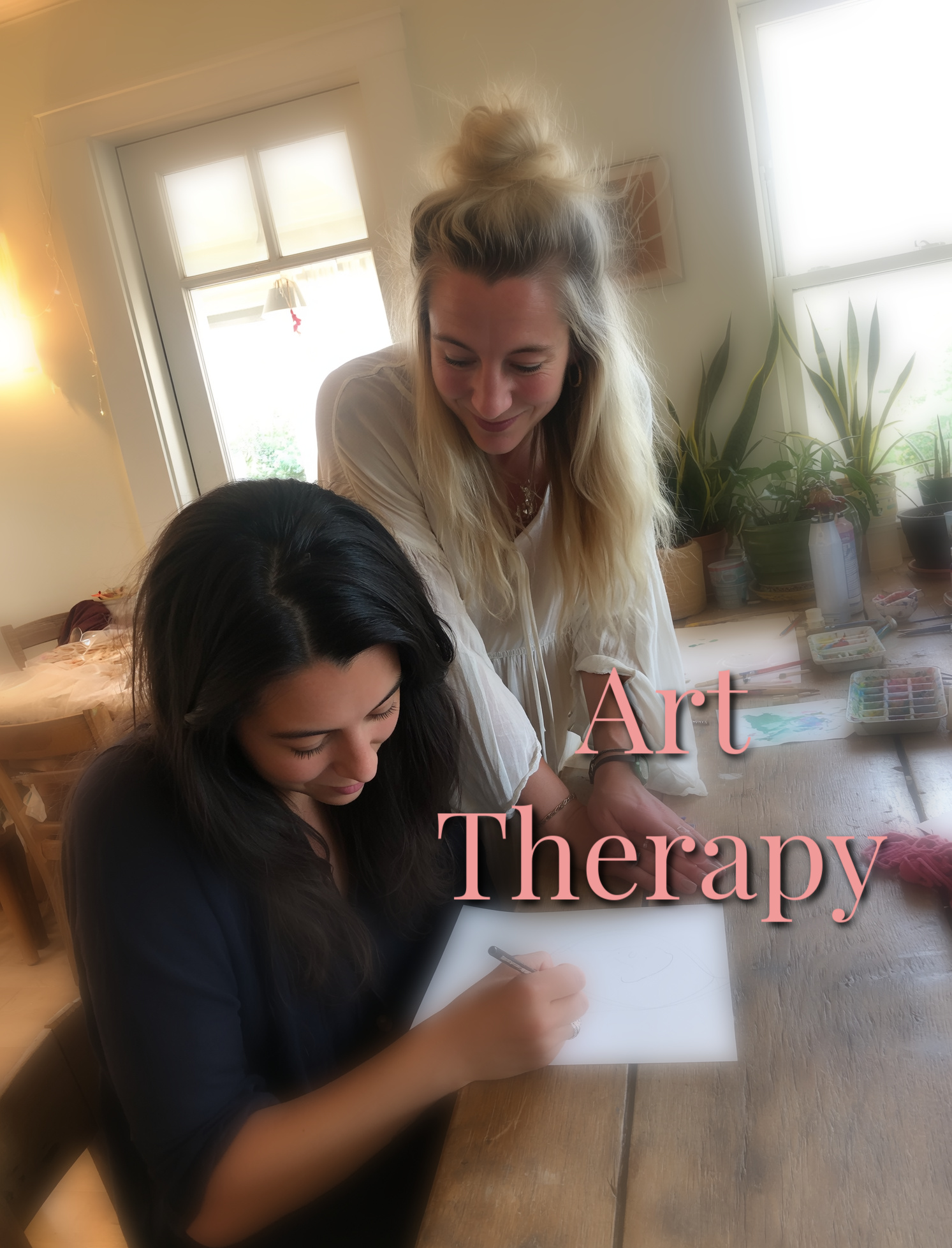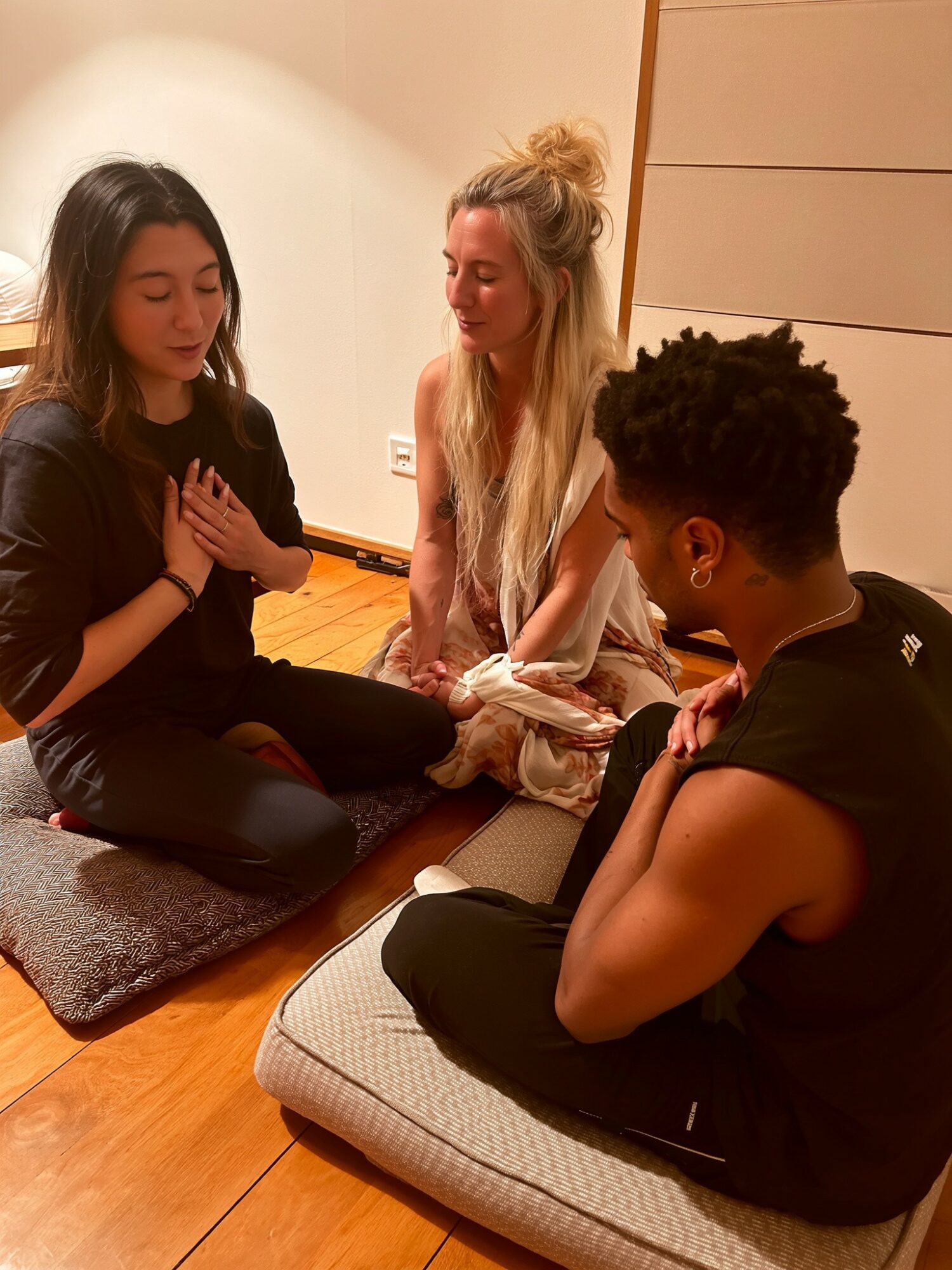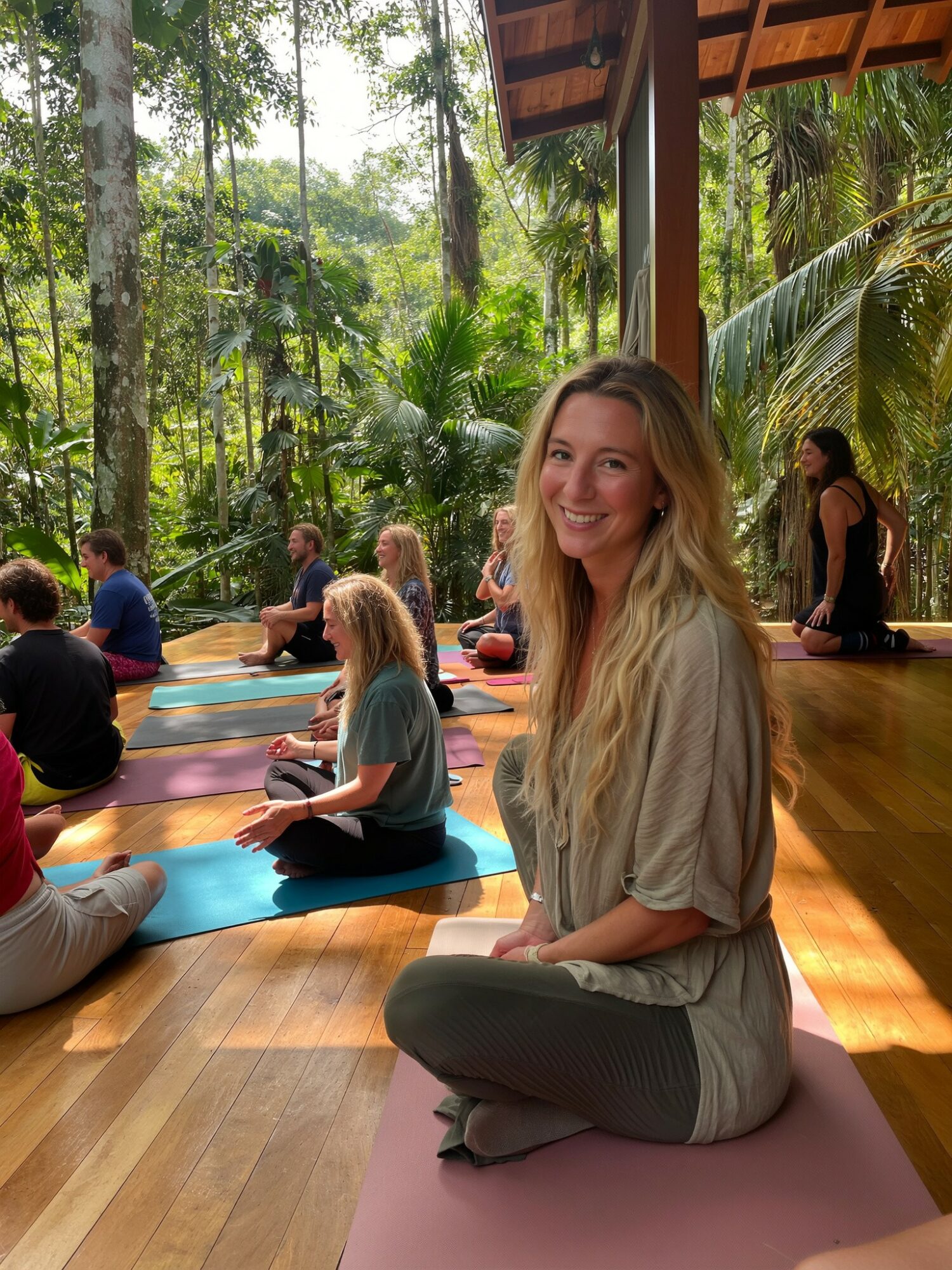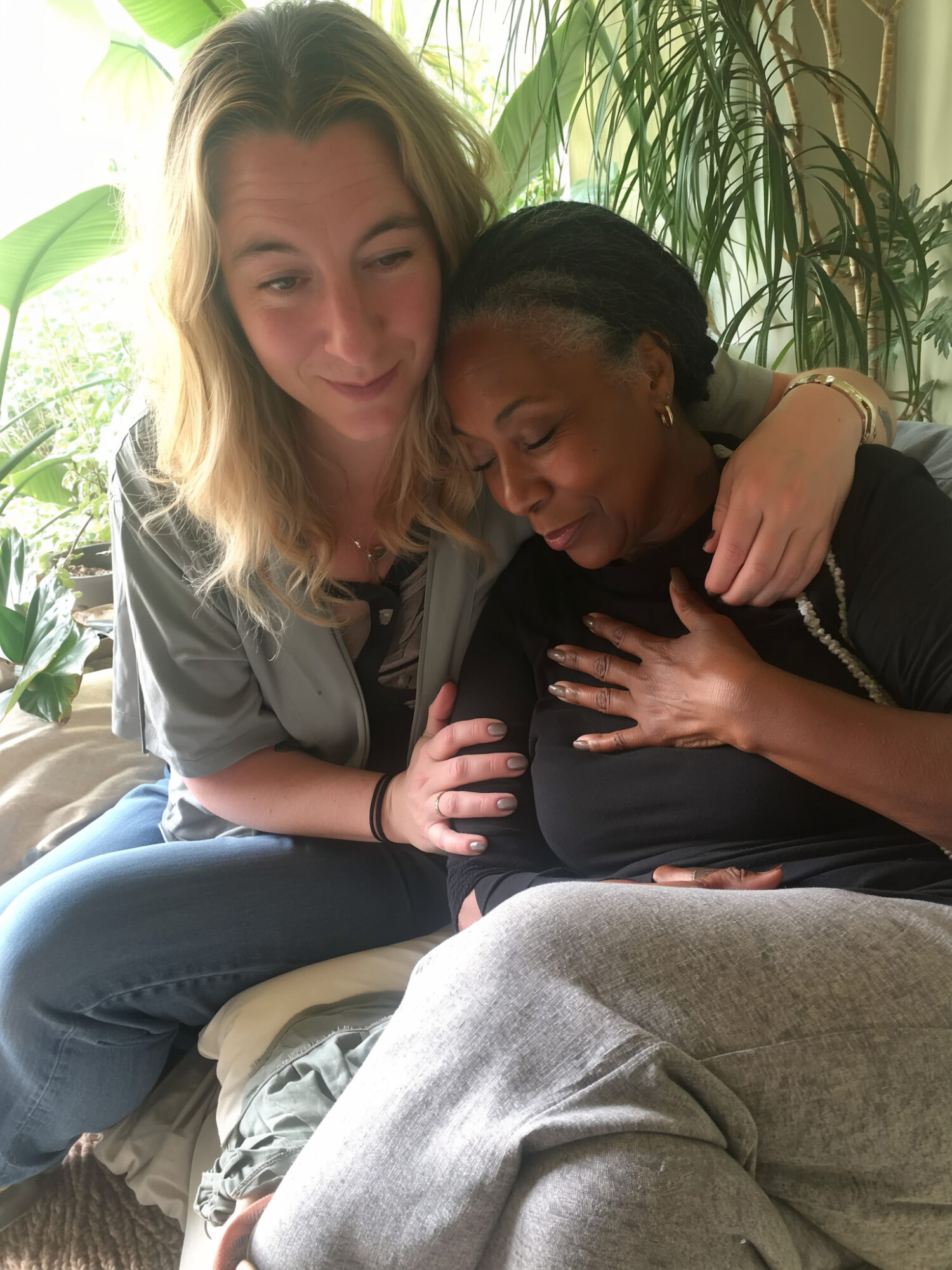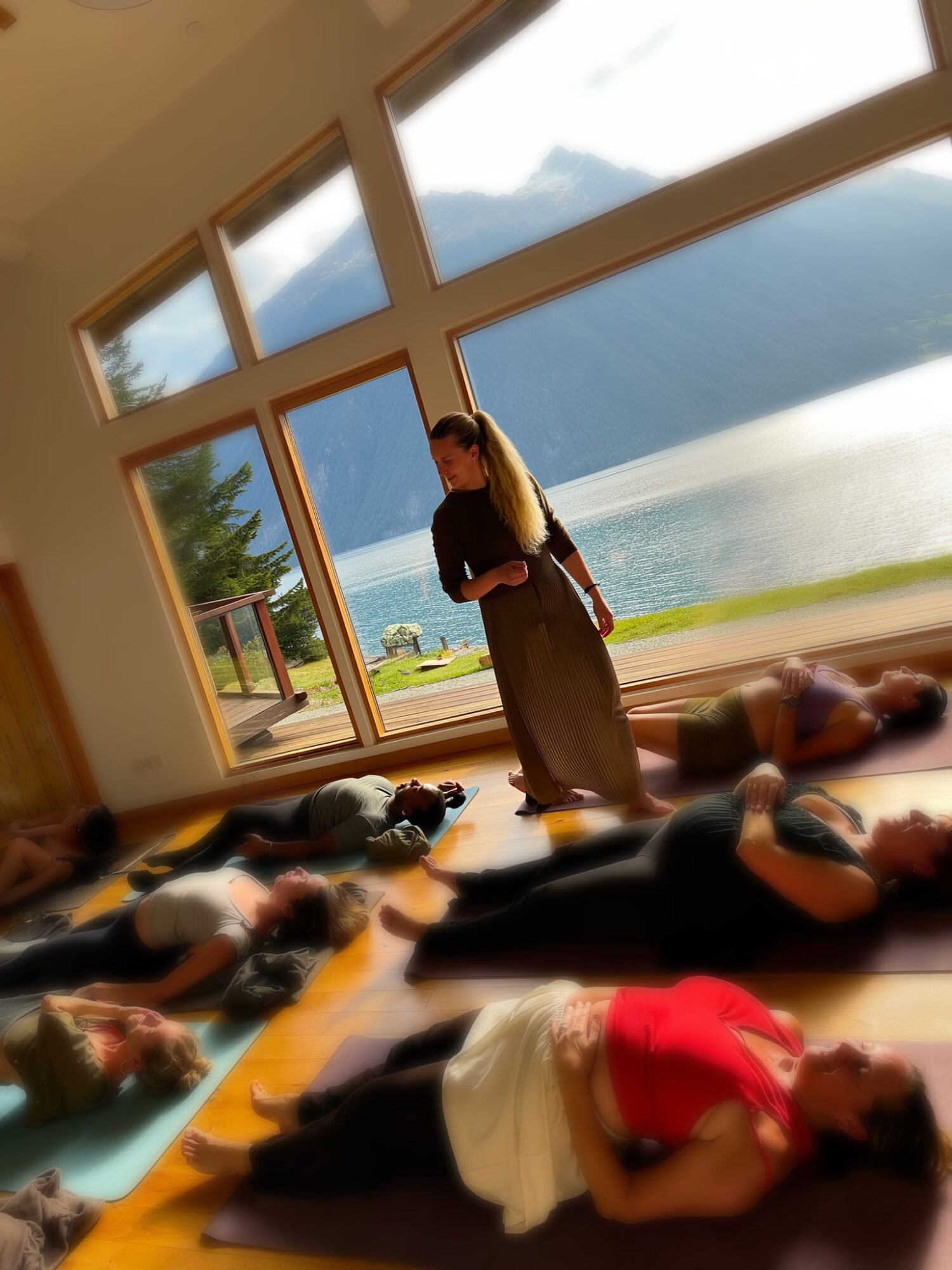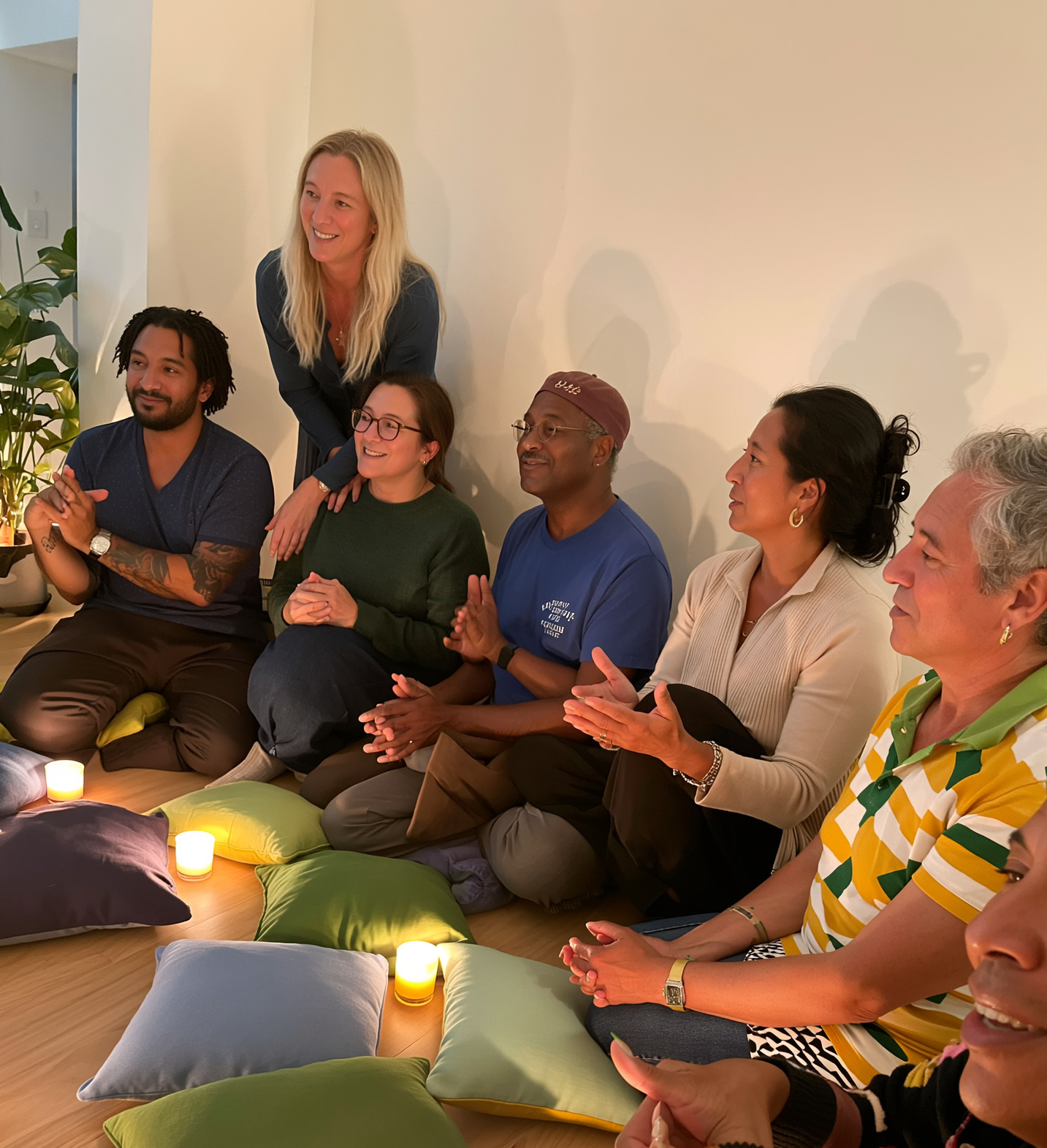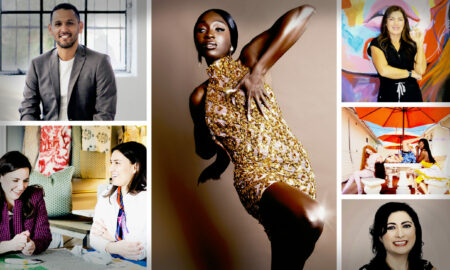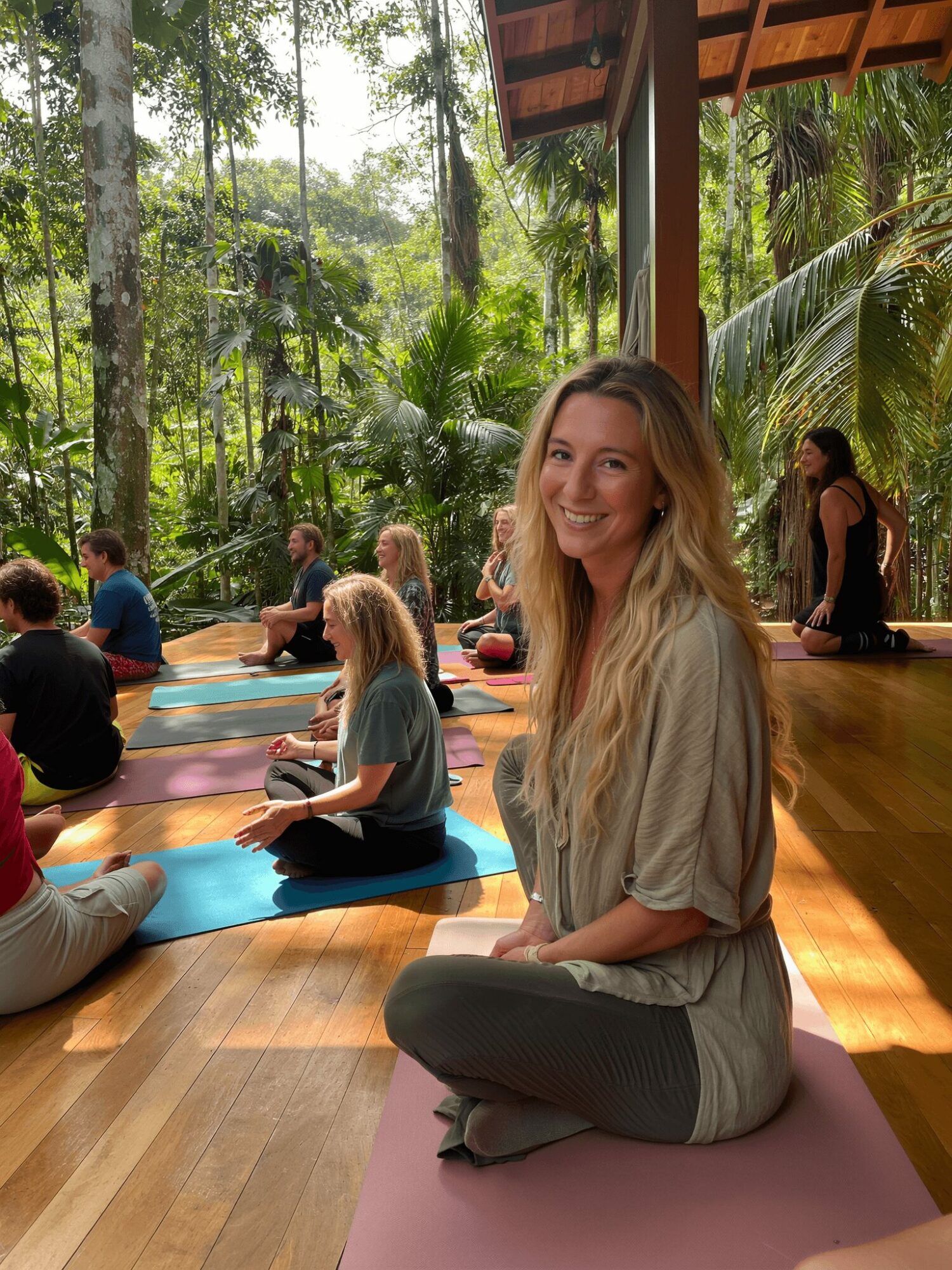

We recently had the chance to connect with Rene Schooler and have shared our conversation below.
Good morning Rene, we’re so happy to have you here with us and we’d love to explore your story and how you think about life and legacy and so much more. So let’s start with a question we often ask: What do you think others are secretly struggling with—but never say?
I think most people are secretly struggling with the quiet weight of unprocessed pain. They move through their days carrying memories that still ache, choices they regret, and voices in their heads that don’t belong to them but were planted long ago. We’ve created a culture that prizes surface smiles and curated lives, but beneath it people are exhausted. They’re afraid to admit how heavy their bodies feel with stored trauma, how often they replay the moment someone abandoned them, how much shame still lives in their skin.
And because we don’t name it, we normalize it. We think we’re the only ones who feel broken, the only ones who’ve been manipulated, touched too soon, left unseen. But the truth is—we’re not alone in it. Everyone is carrying something.
That’s the heartbeat behind my books and my work. Whether it’s in the pages I’ve already released, the manuscripts I’m writing now, or the trauma integration sessions I hold, it all comes down to this: helping people face what they’ve locked away. To bring it to the surface, not to drown in it, but to release it. To finally breathe in their own skin without the constant undertow of the past.
My coaching isn’t about quick fixes or mantras slapped over wounds. It’s about touch, breath, memory, and the raw truth of what the body is storing. When we can integrate those pieces, we stop living as fragmented survivors and start living as whole humans again.
That’s what I think people are struggling with—but rarely say out loud.
Can you briefly introduce yourself and share what makes you or your brand unique?
I’m Rene, a writer and a guide for people who are ready to stop hiding from their own stories. I’ve published a handful of books already, with more on the way—each one circling around the same heartbeat: truth. Not the polished kind that fits neatly into a quote on Instagram, but the kind you taste in your gut, the kind you’ve avoided saying out loud.
My work sits at the crossroads of writing and trauma integration. On one side, I tell the stories—the raw, candid pieces of life that most people sweep under the rug. On the other side, I help people feel what they’ve buried in their own bodies. Trauma doesn’t just live in the mind; it settles in the hips, in the jaw, in the nervous system. My integration sessions are about release. Not talk therapy, not empty affirmations, but actual shifts in the body that free people from the grip of what they’ve been carrying.
What makes me unique? I don’t sugarcoat. I don’t make the hard parts pretty. Whether it’s in my books or my coaching, I meet people exactly where they are—in the mess, in the ache, in the chaos—and help them move through it. I think people are tired of perfection. They want someone real, someone who has walked through fire and isn’t afraid to say it out loud. That’s the thread through everything I do.
Right now, I’m working on two fronts: continuing to build my integration practice, and finishing the next books that are burning their way out of me. Both are about pulling truth into the open and creating space for healing—because that’s what this time in history is asking of us.
Thanks for sharing that. Would love to go back in time and hear about how your past might have impacted who you are today. What relationship most shaped how you see yourself?
The relationship that has most shaped how I see myself isn’t one you can put a name or face to. It’s my relationship with God, with the unseen world—the guides and angels who have pulled me through moments when I should have been crushed. I’ve had plenty of human relationships that have left their mark—some beautiful, some brutal—but underneath all of that was a constant thread. Every time I was on the floor, every time the world went dark, there was a presence that whispered, get up.
That relationship taught me I am never really alone. It taught me that pain isn’t the end of the story. When I was tangled in narcissistic abuse, when I was holding my son’s blood in my hands after his accident, when I thought I couldn’t take one more step—God was there. Angels were there. My guides have always shown up, sometimes through dreams, sometimes through a stranger’s words, sometimes through a silence that was so thick I could feel it.
It shaped how I see myself because it forced me to recognize: I’m not just a woman, or a mother, or a writer—I’m a soul. A soul here on assignment. That lens changes everything. It keeps me honest in my work, grounded in my writing, and relentless in my integration sessions with others. I know what it means to be carried through fire, and I know I’m meant to carry others through theirs.
What fear has held you back the most in your life?
The fear that’s held me back the most is the fear of not being good enough. It’s shown up in every role I’ve ever carried—as a mother, a wife, a coach, an author, a friend. No matter what I was doing, there was always that shadow whispering that I was falling short.
As a mother, it was the weight of seven kids and the impossible standard of holding it all together. As a wife, it was the gnawing sense that my love wasn’t enough to heal someone else’s brokenness. As a coach, it was wondering if I could really guide someone out of the dark when I was still wrestling with my own. As an author, it was the quiet terror that my words would land flat or worse—be ignored. Even as a friend, I’ve caught myself pulling back, afraid I wasn’t showing up the way someone deserved.
That fear has been both the wound and the teacher. It’s slowed me down, silenced me, and made me small at times. But it’s also forced me to face the truth that “good enough” isn’t a moving target out there—it’s a choice I make in here. Every time I write a book, every time I sit with someone in a trauma release session, every time I love my children fiercely and imperfectly. Every time, allow myself to be fully seen and felt by my fiancé. I get to look that fear in the face and keep going anyway.
Next, maybe we can discuss some of your foundational philosophies and views? Where are smart people getting it totally wrong today?
Where I think smart people get it wrong is in believing they can out-think their trauma. They compartmentalize it, analyze it, stack it into neat boxes in their minds and then wonder why their bodies are still tight, why their relationships still collapse, why their health starts breaking down.
Trauma doesn’t live in the intellect. It lives in the nervous system, in the tissues, in the very cells of the body. It lives in the way you flinch when someone raises their voice, in the way you check out during intimacy, in the way you sabotage love because you don’t trust safety. You can understand your trauma perfectly and still be completely run by it.
This is where most people, especially the “smart” ones, are blind. Emotional health is not separate from physical health. Cellular memory, energetic imprints, the spiritual weight of what’s been done to us, it’s all woven together. You can’t separate them. And until you deal with trauma at that level, every choice you make is colored by it.
Take consent. People talk about it as if it’s just a “yes” or “no,” a mental agreement. But if your body is still holding onto trauma, if your nervous system is locked in survival mode, if you haven’t healed the places where you were broken open, then you’re not actually free to consent. Not in relationships. Not in health. Not in sex. You may think you’re choosing, but in reality, your trauma is choosing for you.
That’s the trap: thinking intellect is enough. It’s not. Healing is full-spectrum—emotional, physical, spiritual, cellular. And until we face that, we’ll keep seeing smart people live small, fractured lives, even while they’re busy explaining everything away.
Okay, so let’s keep going with one more question that means a lot to us: If you retired tomorrow, what would your customers miss most?
If I retired tomorrow, which, honestly, feels impossible because I don’t see an endpoint to this work. My clients would miss more than just sessions or books. They’d miss the guidance that refuses to sugarcoat reality, the kind that points them straight at the parts of themselves they’ve been avoiding. They’d miss the faith-building moments, the way I push them to trust themselves and the unseen, to notice the presence of God, guides, and angels in the small, impossible-to-ignore ways of life.
They’d miss my hugs. Yes, at the front and the back of every session, because touch is a language we often forget, a reminder that presence is healing. They’d miss my candidness, the refusal to let them settle for anything less than real, the gentle but relentless compulsion to go deeper than they thought they could.
And even if I were “retired,” most of my dearest clients know I’m only a text away. They’d miss the constant, unwavering reminder that healing and growth are not momentary, they’re lifelong, and that they are always worthy of receiving that support, even when life hits hard.
What they’d really miss is the mirror I hold up to them: the one that reflects not just where they are, but the vast, unclaimed potential that lies beyond their fear, their trauma, their doubts. That’s irreplaceable.
Contact Info:
- Website: http://kendalwilliams.com
- Instagram: https://www.instagram.com/reneschooler
- Facebook: https://www.facebook.com/reneschooler11
- Yelp: https://www.yelp.com/biz/kw-coaching-and-integration-plano?utm_campaign=www_business_share_popup&utm_medium=copy_link&utm_source=(direct)
- Other: Amazon Author Central – https://www.amazon.com/author/rawandholy
My Substack – Alchemy of Relationships – https://reneschooler.substack.com/
Medium – https://medium.com/@kwcoachingpress
Your Tango – https://www.yourtango.com/experts/kendal-williams
Good Men Project – https://goodmenproject.com/author/rene-schooler/
Elephant Journal – https://www.elephantjournal.com/profile/rene-schooler-kw/
